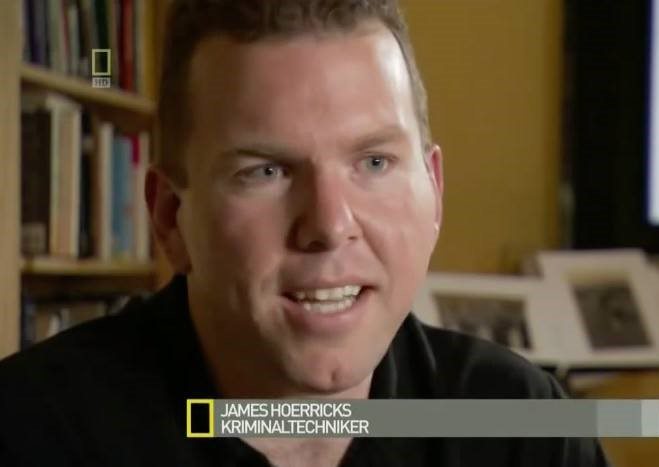Alumni Q&A: Jim Hoerricks ’09, MA ’10

Last month, Jim Hoerricks (Leadership) received his Ph.D. in Education. His dissertation, “Higher Education Support Strategies: An Evaluation of Needs Satisfaction on Autistic College Student Retention,” informs educators and institutions why autistic students withdraw from college at a high rate and what can be done to reduce attrition rates.
Jim, an autistic adult, is the director of customer support and training at Amped Software, Inc. Previously, Jim was the senior forensic multimedia analyst for the Los Angeles Police Department. Jim co-founded the LAPD’s forensic multimedia laboratory in 2002 and helped set the standard for its handling of this unique type of evidence. Jim is the author of the best-selling book, Forensic Photoshop, and a co-author of Best Practices for the Retrieval of Video Evidence from Digital CCTV Systems (DCCTV Guide). Jim also serves on the Organization of Scientific Area Committees for Forensic Science’s Video/Imaging Technology and Analysis subcommittee as the Video Task Group Chair.
The analyst and author reflects on Woodbury’s impact on his life and career:
From what school did you receive your doctorate from and how did you become interested in your field of study?
I received a Doctor of Philosophy degree in Education from Trident University in Cypress, CA. Like Woodbury, they’re a part of the LA Sheriff’s Department University program. This means that the schools are vetted to assure that they’re accredited and that the degrees earned are legitimate. Additionally, the schools in the LASD’s University program understand that they’re getting mid-life learners, which is a unique kind of student with full lives, families, and demanding careers in law enforcement.
My choice of study, and my dissertation, really comes from my own experiences as an undergraduate…being autistic. I attended seven different schools as an undergrad before finding Woodbury. Seven schools that had little idea how to best educate the autistic student. My dissertation comes not only from my experiences but also a desire to make it better for next generation of autistic college students.
Do you think your time at Woodbury helped you to pursue this? If yes, how?
Having struggled to get classes within the public university system, having eventually arrived in class only to find an overwhelming sensory environment and inattentive instructors, it was refreshing to eventually discover Woodbury. Smaller class sizes, relative ease in scheduling classes, and the seamless movement from one course to the next made the time at Woodbury fly by. Moving from the Bachelor to the Master Leadership program was made easy, as well. Thankfully, Woodbury hires amazing people in student support roles.
In what ways has your Woodbury experience made you who you are today?
Around 2004, my chief at the LAPD made the decision to require college degrees to promote to and beyond certain ranks. He partnered with the LA County Sheriff’s University program to help those of us who had no idea how to begin the process of going back to school. A sergeant recommended Woodbury. At that point, it had taken a few years to get just a few classes completed. Three and a half years later, I had earned a Master’s degree. Without Woodbury, I probably would have been too frustrated and would have likely quit school altogether.
What advice would you give to alumni, or current students, who aspire to pursue advanced degrees?
Begin with the end in mind. Have a plan for how your advanced degree will pay for itself within three, five, 10 years. Understand the market and your future place in it. It will be a struggle to balance school and the rest of your life. Don’t give up.
Describe Woodbury in 3 words
Welcoming. Accommodating. Inspiring.